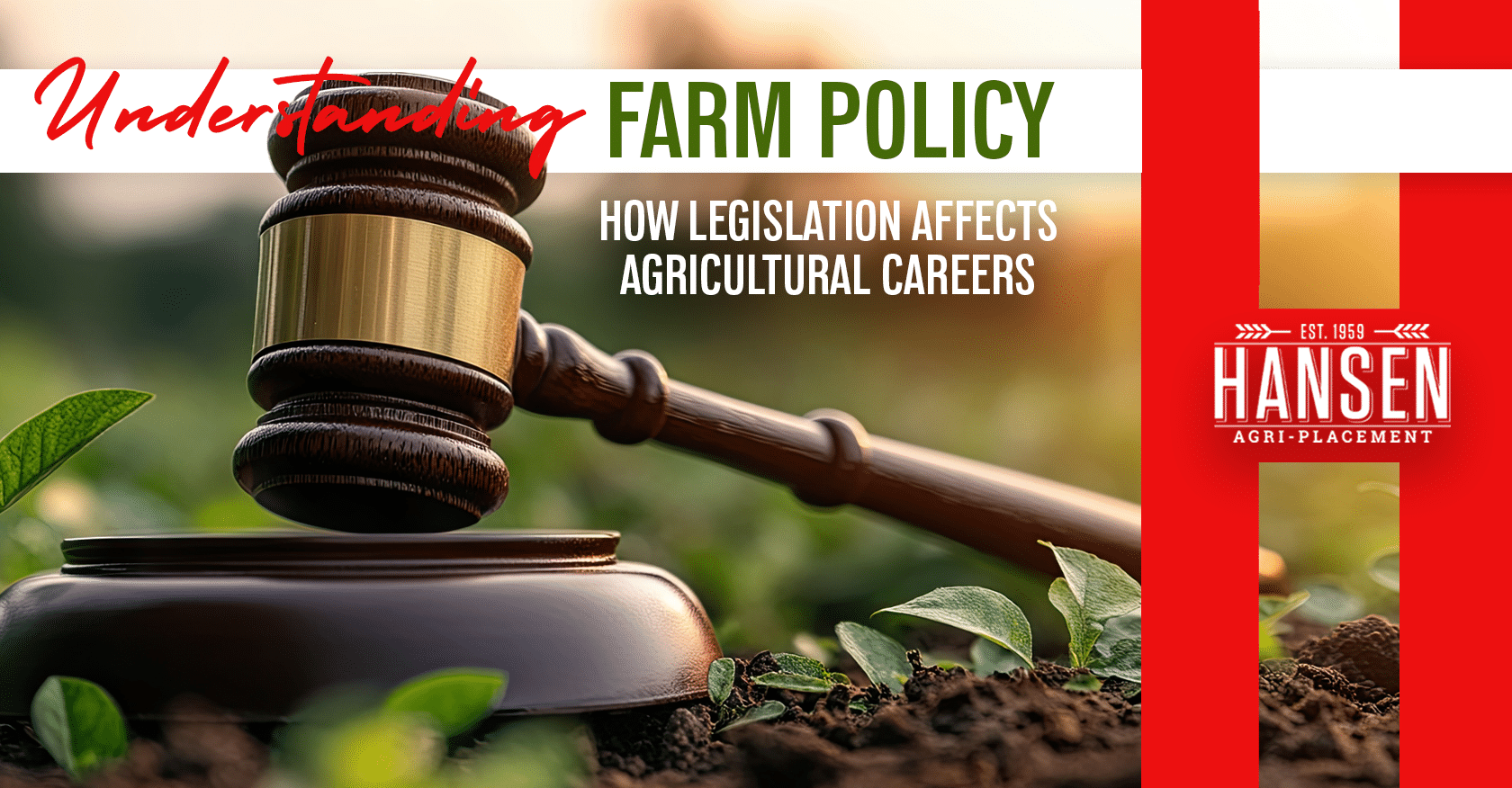
The agricultural industry is deeply influenced by national and local policies, which shape everything from farm operations to career opportunities. Farm policy determines the allocation of resources, regulatory frameworks, and incentives that drive decision-making in agriculture. For professionals in the industry, understanding how legislation impacts agricultural careers is crucial for navigating opportunities and challenges effectively.
In this blog, we’ll explore the ways farm policy influences agricultural careers, the key areas of legislation to monitor, and how staying informed can help you thrive in this ever-evolving field.
The Role of Farm Policy in Agriculture
Farm policies are designed to regulate, protect, and support the agricultural industry. These policies influence critical aspects such as:
- Subsidies and Support Programs
Government subsidies and financial support programs impact crop prices, farm income, and risk management. These programs often dictate which crops or livestock are prioritized, affecting career demand in certain sectors. - Trade and Export Policies
Trade agreements and tariffs shape the global competitiveness of U.S. agricultural products. Careers in agribusiness, grain merchandising, and international trade are directly affected by these policies. - Labor Regulations
Immigration laws, minimum wage requirements, and labor protections have significant implications for agricultural workforce availability and working conditions. This affects hiring practices, career growth, and operational efficiency. - Environmental and Sustainability Policies
Legislation aimed at reducing carbon emissions, conserving water, and managing land use drives demand for roles in sustainable farming, environmental consulting, and precision agriculture. - Research and Innovation Funding
Policies that allocate funding for agricultural research and innovation open opportunities in agritech, biotechnology, and agricultural engineering.

How Farm Policy Impacts Agricultural Careers
- Shifting Job Demand
Changes in policy often lead to shifts in career opportunities. For example, a focus on renewable energy in agriculture, such as biofuels, can create demand for specialists in grain production or ethanol processing. - Career Specialization
As new policies emerge, agricultural professionals may need to specialize in areas such as sustainability, compliance, or export logistics to stay competitive. - Increased Education and Certification Requirements
Legislation often introduces new compliance standards, requiring professionals to pursue additional education or certifications to meet industry needs. - Opportunities in Advocacy and Policy Development
Farm policies require knowledgeable professionals to advocate for the industry and shape future legislation. Roles in agricultural lobbying, policy analysis, and rural development offer meaningful career paths for those passionate about shaping the future of agriculture.
Key Policies to Watch
- Farm Bills
Enacted every five years, farm bills outline federal spending on agriculture, food programs, and rural development. These comprehensive policies influence nearly every aspect of agricultural careers. - Immigration Reform
Policies governing the availability of seasonal and migrant labor can significantly impact workforce dynamics in agriculture. - Climate Legislation
Initiatives aimed at reducing agriculture’s carbon footprint affect everything from farming practices to the development of new technologies. - Food Safety Modernization Act (FSMA)
FSMA regulations have increased demand for professionals in food safety, compliance, and quality assurance. - Trade Agreements
Policies such as the USMCA (United States-Mexico-Canada Agreement) or export tariffs impact global trade, creating opportunities in agribusiness and export management.
Navigating Agricultural Careers in a Changing Policy Landscape
- Stay Informed
Keeping up with policy changes is essential. Follow industry news, attend webinars, and subscribe to updates from agricultural organizations. - Pursue Relevant Education
Understanding farm policy can set you apart in the job market. Consider courses or certifications in agricultural law, policy, or economics. - Leverage Cooperative Extensions
Many cooperative extensions offer resources and training on navigating policy impacts at the local level. - Work with Recruitment Experts
Recruitment agencies like Hansen Agri-PLACEMENT can help connect you with employers who value candidates with a deep understanding of policy impacts.
Building a Future in Agriculture
Farm policy shapes the agricultural industry, influencing job demand, skills requirements, and career trajectories. By understanding how legislation impacts the field, you can position yourself for success in a rapidly changing environment. Whether you’re a seasoned professional or just starting your journey in agriculture, staying informed and adaptable is the key to thriving in this vital industry.
Looking for a role in agriculture that aligns with your skills and interests? Hansen Agri-PLACEMENT is here to help. Explore our latest job opportunities today!
